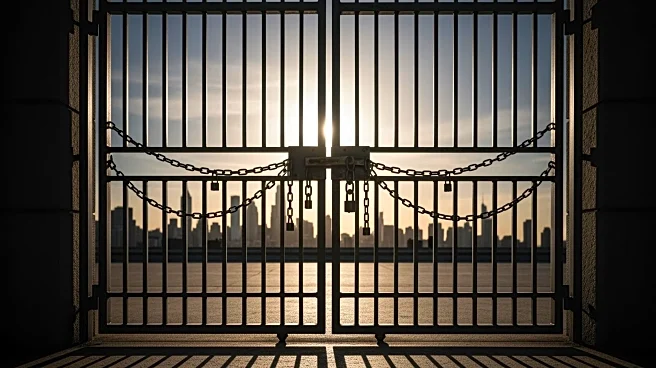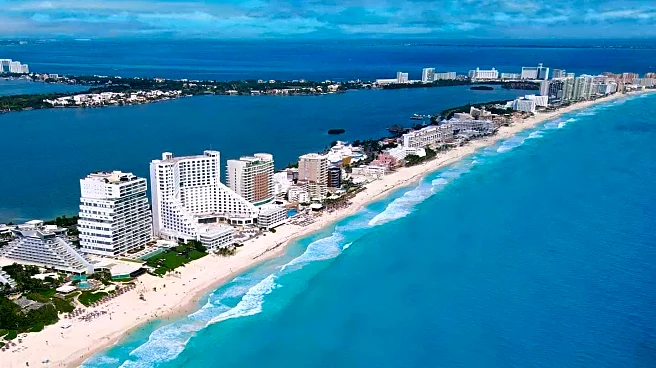What's Happening?
A U.S. appeals court has temporarily blocked an order that restricted federal immigration enforcement in Chicago. The order, issued by U.S. District Court Judge Sara Ellis, imposed strict limitations on how agents could interact with protesters and journalists.
The Trump administration requested the pause, arguing that the judge's order was too prescriptive and infringed on the separation of powers. The appeals court agreed, stating that the order resembled federal regulation and was too sweeping, applying to almost any law enforcement personnel within the executive branch. The decision comes amid a tense legal showdown between the administration and the judge, who has expressed skepticism over the government's presentation of facts in court.
Why It's Important?
The decision by the appeals court is significant as it highlights the ongoing legal battles over immigration enforcement tactics under President Trump's administration. The ruling underscores the tension between federal authority and judicial oversight, particularly in cities with strong opposition to the administration's immigration policies. The outcome of this case could set a precedent for how federal agents are allowed to operate in urban areas, impacting the balance of power between the executive branch and the judiciary. It also reflects broader national debates on immigration enforcement and civil liberties.
What's Next?
The pause on Judge Ellis's order is temporary, as the appeals court considers the Trump administration's larger appeal. The court's decision suggests that a more tailored injunction may be issued, addressing First and Fourth Amendment claims raised by the plaintiffs. As the legal proceedings continue, the administration is likely to face further challenges from state and local governments, as well as civil rights groups, who oppose its immigration enforcement tactics. The case could influence future policies and enforcement strategies in other cities.
















